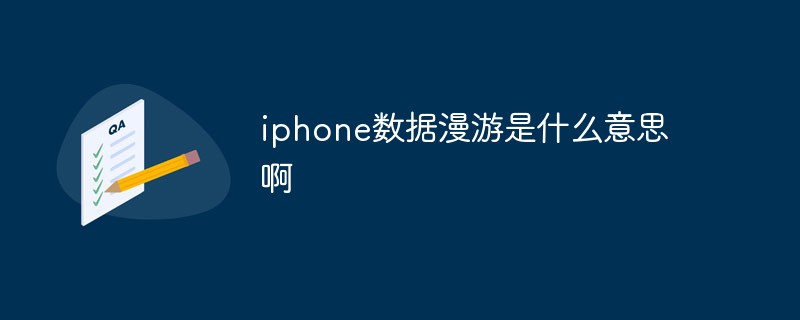 Mobile Tutorial
Mobile Tutorial Mobile News
Mobile News Apple responds to iPhone 'parts serialization' controversy: compatible with most third-party parts and improves repair transparency
Apple responds to iPhone 'parts serialization' controversy: compatible with most third-party parts and improves repair transparencyAccording to news on April 12, Apple issued a press release yesterday and plans to adjust its repair policy in the United States later this year. Users and independent repair shops can use second-hand Apple original accessories to repair some iPhone models.
At the same time as the announcement was made, John Ternus, Apple’s head of hardware engineering, was interviewed by TechCrunch and talked about the iPhone’s controversial “parts serialization” process. The repair website iFixit lowered the repairability score of the iPhone due to "parts serialization" last year. The state of Oregon in the United States also recently passed a law stating that digital devices produced starting from January 1, 2025 must not use "parts serialization". ization” plan.Turners said in the interview that the iPhone is still compatible with many third-party parts:
"Parts serialization" is a very widely used term and is often derogatory in the eyes of many consumers. . Many consumers mistakenly believe that we [Apple] somehow prevent the use of third-party parts in iPhones, but in fact we have not done so. From our standpoint, our serialization pairing needs to know what the components in the device are. One, we need to verify that this is a genuine Apple biometric device and not counterfeit, and the other is to achieve a better fit through calibration.
Turners said that for security reasons, we prohibit pairing third-party components related to Face ID and Touch ID:
Consumers store a large amount of private data on their phones. , so we absolutely prevent the pairing of security-related parts such as Face ID and Touch ID. At this stage we are unable to verify the performance of any third-party biometric technology, so we explicitly will not use third-party parts to implement critical security functions.
Increase repair transparency
Apple will alert users if iPhone parts are not genuine. If your iPhone has been repaired, a Parts & Service History section will appear under General → About in the Settings app to show whether non-genuine Apple parts were installed. Turners said:
Turners said: The hundreds of millions of iPhones we currently use are second-hand or third-hand devices. These devices are a great way for people to experience the iPhone at a lower price. We think it's important for them to know: Has this device been serviced? What parts are used? Questions like this.The above is only an excerpt of part of the interview. The original address of the interview is attached. Interested users can read it in depth. Related reading: "Apple will improve the repair process, customers and independent repairers can use second-hand Apple parts for repairs"
The above is the detailed content of Apple responds to iPhone 'parts serialization' controversy: compatible with most third-party parts and improves repair transparency. For more information, please follow other related articles on the PHP Chinese website!
 苹果xs max是几代Nov 03, 2022 pm 04:58 PM
苹果xs max是几代Nov 03, 2022 pm 04:58 PM苹果xs max是苹果第十二代。“X”是罗马数字中的10,“X”代表苹果向iPhone问世十周年的致敬;2017年9月13日,iPhone X正式发布,该产品为苹果第十一代产品;iPhone XS Max是2018年9月13日发布的,为第十二代苹果手机。
 iphone13 mini是双卡还是单卡Nov 22, 2022 pm 05:27 PM
iphone13 mini是双卡还是单卡Nov 22, 2022 pm 05:27 PMiphone13 mini是单卡。iphone13 mini是苹果公司于2021年9月15日发布的一款智能手机,其SIM卡片类型为nano-SIM卡,并不兼容现有的micro-SIM卡,因此不支持双卡模式;该机为5G(sub-6 GHz)全网通手机(支持中国联通、中国移动和中国电信),支持GSM/EDGE、UMTS/HSPA+、DC-HSDPA网络。
 iphone13 pro可以插几张卡Nov 28, 2022 pm 05:56 PM
iphone13 pro可以插几张卡Nov 28, 2022 pm 05:56 PMiphone13 pro可以插2张卡。iPhone13 Pro是苹果公司于北京时间2021年9月15日发布的智能手机,支持双卡双待,支持双卡nano-SIM卡,但不兼容现有的micro-SIM卡;应用双卡要求运用两项移动通信服务,不支持同一时刻使用两项CDMA移动通信服务,且仅部分运营商支持双VoLTE。
 iphone13摄像头旁边的小孔是什么Nov 07, 2022 pm 02:52 PM
iphone13摄像头旁边的小孔是什么Nov 07, 2022 pm 02:52 PMiphone13摄像头旁边的小孔是麦克风,采用双唛降噪设计,是辅助副送话器收音用的,可以用来降低环境噪音和提升通话语音的清晰度的。由于在拍摄视频的时候会由于环境噪音导致被摄主体的收音效果不佳,目前大部分的智能手机都会在机身上设置有多个降噪麦克风,用来录制周围环境的噪音,结合降噪算法,实现降噪效果。
 iphone13是双卡双待吗Aug 11, 2022 pm 03:52 PM
iphone13是双卡双待吗Aug 11, 2022 pm 03:52 PMiphone13是双卡双待,iphone13系列中只有“iPhone 13 mini”不是双卡双待;苹果iPhone13支持双卡双待,双卡类型为“nano-SIM”,不支持现有的“micro-SIM”卡,需要正反两面安装SIM卡,一共可以安装两张“12mm*9mm nano-SIM”卡。
 iphone数据漫游是什么意思啊Dec 02, 2022 am 10:52 AM
iphone数据漫游是什么意思啊Dec 02, 2022 am 10:52 AMiphone数据漫游是指iPhone蜂窝网络下的“数据漫游”功能,而数据漫游就是跨运营商的漫游;在国内,该功能无论是打开或者关闭,都是没有任何作用的,因为它只是针对国际上不同的移动运营商起作用。
 苹果iPhone11跟iPhone13的区别是什么Oct 25, 2022 am 10:35 AM
苹果iPhone11跟iPhone13的区别是什么Oct 25, 2022 am 10:35 AM区别:1、苹果11采用A13仿生处理芯片,具有4核图形处理器和8核神经网络引擎;而13采用采用A15仿生处理芯片,具有4核图形处理器和16核神经网络引擎。2、苹果11屏幕尺寸为6.1英寸Liquid 视网膜高清显示屏;而苹果13屏幕尺寸为6.1英寸超视网膜XDR显示屏。3、苹果11的屏幕对比度为1400:1对比度,而苹果13的屏幕对比度为2000000:1对比度。
 苹果教育优惠版和普通版有什么区别Oct 19, 2022 am 09:17 AM
苹果教育优惠版和普通版有什么区别Oct 19, 2022 am 09:17 AM区别:1、教育优惠比官网标价(普通版)要便宜。2、教育优惠官网下单速度会比普通版慢,普通版有货的状态一般是1-3个工作日就发货了,教育优惠版比较快的也是几天时间,如果是遇到了开学前大量学生购买的高峰期,可能要排队几个星期。3、教育优惠适用人群为准大学生、大学生、教职工(包括大中小学以及特殊教育学校的教职工群体);而普通版的适用人群比较广。


Hot AI Tools

Undresser.AI Undress
AI-powered app for creating realistic nude photos

AI Clothes Remover
Online AI tool for removing clothes from photos.

Undress AI Tool
Undress images for free

Clothoff.io
AI clothes remover

AI Hentai Generator
Generate AI Hentai for free.

Hot Article

Hot Tools

SublimeText3 Chinese version
Chinese version, very easy to use

SAP NetWeaver Server Adapter for Eclipse
Integrate Eclipse with SAP NetWeaver application server.

VSCode Windows 64-bit Download
A free and powerful IDE editor launched by Microsoft

Dreamweaver CS6
Visual web development tools

SublimeText3 Mac version
God-level code editing software (SublimeText3)





